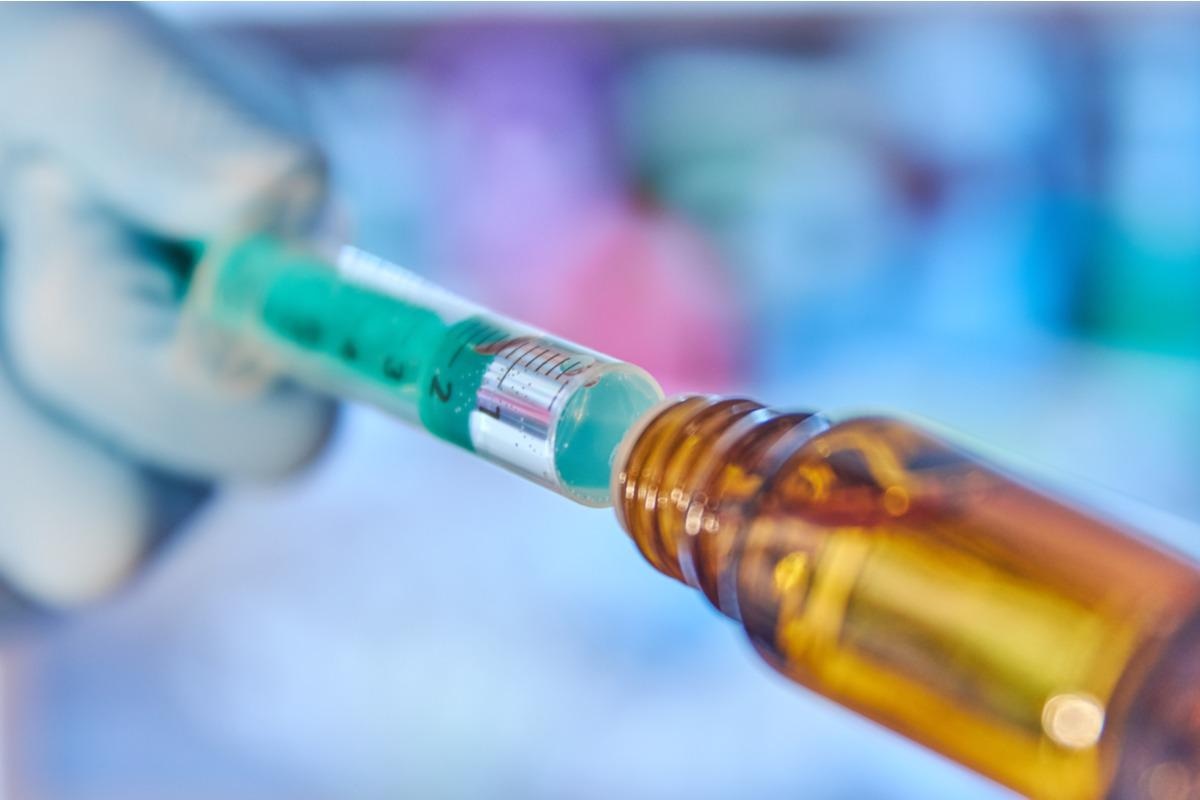In a recent study posted to the Research Square* preprint server, researchers assessed the increase in Pfizer/BioNTech BNT162b2 vaccine efficacy on administering a homologous booster dose. They determined the enhancing potential of the booster dose by evaluating the serum immunoglobulin G (IgG) antibody titers against the spike (S) protein of severe acute respiratory syndrome coronavirus 2 (SARS-CoV-2).
 Study: Effect of BNT162b2 booster dose on anti-SARS-CoV-2 spike trimeric IgG antibodies in seronegative individuals. Image Credit: lupmotion/Shutterstock
Study: Effect of BNT162b2 booster dose on anti-SARS-CoV-2 spike trimeric IgG antibodies in seronegative individuals. Image Credit: lupmotion/Shutterstock

 This news article was a review of a preliminary scientific report that had not undergone peer-review at the time of publication. Since its initial publication, the scientific report has now been peer reviewed and accepted for publication in a Scientific Journal. Links to the preliminary and peer-reviewed reports are available in the Sources section at the bottom of this article. View Sources
This news article was a review of a preliminary scientific report that had not undergone peer-review at the time of publication. Since its initial publication, the scientific report has now been peer reviewed and accepted for publication in a Scientific Journal. Links to the preliminary and peer-reviewed reports are available in the Sources section at the bottom of this article. View Sources
Background
Coronavirus disease 2019 (COVID-19) has given rise to significant morbidity and mortality across the globe. This has led to the development of several vaccines. Although COVID-19 vaccines have potent short-term effects, their clinical efficiency decreases with time, with a corresponding decline in serological anti-SARS-CoV-2 trimeric IgG antibody titers. To this end, booster doses have been administered for restoring vaccine effectiveness to sufficient levels (greater than 50%) and increasing the neutralization of the mutant SARS-CoV-2 strains.
About the study
In the present retrospective observational study, the researchers evaluated the impact of a homologous booster dose in improving the efficacy of the messenger ribonucleic acid (mRNA)-based COVID-19 BNT162b2 vaccine. The booster dose efficiency was investigated on the basis of alterations in the serological anti-SARS-CoV-2 trimeric IgG antibody titers.
A total of 100 healthcare personnel with SARS-CoV-2 seronegativity at baseline, who were being primarily immunized with the BNT162b2 vaccine (two doses of 30 µg administered three weeks apart), as part of a serosurveillance survey, were recruited for the study. Molecular screening tests were conducted every two to four weeks until the completion of the study to detect asymptomatic and symptomatic COVID-19 cases.
Out of the 100 healthcare workers, 18 were excluded from the analysis as they tested positive for SARS-CoV-2 mRNA during the study period. Additionally, 29 participants were lost to follow-up. As a result, only 53 subjects were included in the final analysis. These study participants were administered a 30-µg single homologous vaccine booster dose after eight months of being primarily vaccinated.
Venous blood samples were obtained from all the subjects before each primary vaccination dose and at one, three, and six-month intervals post-vaccination. Additionally, blood was collected one-month pre-and post-homologous BNT162b2 vaccine booster administration. The serological titers of anti-SARS-CoV-2 IgG were evaluated using the DiaSorin trimeric spike IgG immunoassay, and the results were denoted as kilo Binding Antibodies Units per liter (kBAU/L).
Additionally, the serum anti-SARS-CoV-2 IgG titers were compared to the 80% cut-off value (264 kBAU/L) of vaccine efficacy, established in previous studies, against symptomatic COVID-19. The interquartile ranges (IQR) were derived from the antibody titer values and inserted into the Analyse-it software for statistical analysis.
Results
The average age of the study population was 46 years. About 60% of the participants were females. An initial peak in anti- SARS-CoV-2 IgG titers was detected within one month of the primary BNT162b2 vaccination. Moreover, all patients demonstrated serum anti-SARS-CoV-2 trimeric IgG titers exceeding 264 kBAU/L within a month of receiving both the primary vaccine doses. However, these titers showed a 77.4% decline within six months and further decreased to 47.2% immediately before the booster vaccine dose administration.
Another peak in these antibody titers was observed a month after the homologous vaccine booster was administered. This second peak showed a 39-fold increase compared to the titers before the third dose administration. Moreover, this peak was three-fold higher than the initial peak. Likewise, the proportion of participants demonstrating anti-SARS-CoV-2 IgG titers exceeding 264 kBAU/L rose from 47% to 100% within a month of booster dose administration.
Conclusion
The study findings showed that the homologous vaccine booster enhanced the efficacy of the BNT162b2 vaccine in producing robust humoral immune protection against SARS-CoV-2. Notably, the third vaccination boosted SARS-CoV-2 IgG titers by almost 40-fold compared to that observed immediately before the homologous vaccine dose with a concomitant 100% increase in seropositivity. Additionally, the booster dose effectively increased the anti-SARS-CoV-2 IgG antibody titers by three-fold compared to the antibody titers present post-primary vaccination.
This longitudinal study’s observations support current health policies encouraging COVID-19 vaccine booster doses to strengthen humoral immunity. These booster vaccinations would be especially beneficial for highly vulnerable populations and subjects with steep declines in humoral immune responses (vaccine or natural infection acquired). The significant rise in antibody titers after booster vaccinations could improve COVID-19 mitigation and confer enhanced protection against mutant variants of SARS-CoV-2.

 This news article was a review of a preliminary scientific report that had not undergone peer-review at the time of publication. Since its initial publication, the scientific report has now been peer reviewed and accepted for publication in a Scientific Journal. Links to the preliminary and peer-reviewed reports are available in the Sources section at the bottom of this article. View Sources
This news article was a review of a preliminary scientific report that had not undergone peer-review at the time of publication. Since its initial publication, the scientific report has now been peer reviewed and accepted for publication in a Scientific Journal. Links to the preliminary and peer-reviewed reports are available in the Sources section at the bottom of this article. View Sources